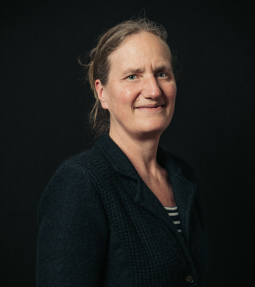In minimally invasive surgery, the surgeon operates through the small incisions. Compared to open surgery, minimally invasive surgery results in smaller scars, less trauma, less blood loss, faster recovery and a lower risk of infection.
In addition to the direct benefits for the patient, there are economic benefits too: shorter hospital stays and quicker recovery mean the patient can go back to work faster. Minimally invasive surgery relies on the minimally invasive instruments that are designed and developed in academia. Currently, many instruments being developed have unique designs and advanced functionalities. However, these instruments lack standardization, they are complex, expensive and difficult to manufacture. This creates hurdles for regulatory assessment and certification and delays innovation benefits for the patient. The Medical Delta NIMIT program aims to design minimally invasive instruments that enable a rapid innovation cycle based on wel characterized, documented process steps and standardized tests. This will eventually lead to quicker implementation in clinical practice. In order to achieve this, new design, manufacturing and assembly methods should be developed for minimally invasive instruments. The instruments produced should be simpler ad should support sustainable surgery.
Modular instruments
“As academic developers, we realized that we do not get far enough in the translational trajectory to transfer our technologies to clinical practice,” says Gijs van Soest, Associate Professor at the Department of Cardiology at Erasmus MC.
“It is a shame to throw away every part of a good technical device that still functions well, after having only been in the body for half a minute,” says Tim Horeman, Assistant Professor at the department of Biomechanical Engineering at TU Delft.
Circular design can help reduce this waste. The circular economy can be applied on three levels: reuse the instrument as a total assembly; reuse certain components or reuse the materials. The goal of this project is to develop a modular design approach for a variety of instruments for several purposes, for example the development of simple and smart hardware components with well- controlled properties that can also be reused for other applications.
Phantom models
The instruments must be tested following a set of regulations. In the Medical Delta program, phantom models will be developed. Phantoms are artificial structures representing human tissues, and they can be used to test medical instruments for function and usability. Such phantoms could also be used in place of some of the animal and clinical trials of the instruments. “It would be preferable if phantoms themselves were standardized and certified by regulatory bodies. This would contribute to the certification of medical instruments,” says John van den Dobbelsteen, Associate Professor at the department of Biomechanical Engineering at TU Delft.
When creating a new instrument, it is important to keep documenting the practical workflows of existing instruments and learn lessons from those devices. This should result in a standardized method for development.
It would be ideal to have a prototype lab where instruments can be made in small, reproducible series. “We don’t want to create and test instruments to have the perfect picture for a scientific paper, we want to test the instruments to be used in clinical practice,” says Van Soest.
Collaboration
In this consortium, TU Delft and Erasmus MC provide the technical knowhow and labs with required equipment. LUMC and Erasmus MC provide the knowledge for safe application. Medical Delta Living Labs ResearchOR and Medical Delta Instruments are also connected to this consortium.
Because this program leads to standardized methods to develop instruments faster and better following regulations, the results can also be of value for other programs at Medical Delta.







